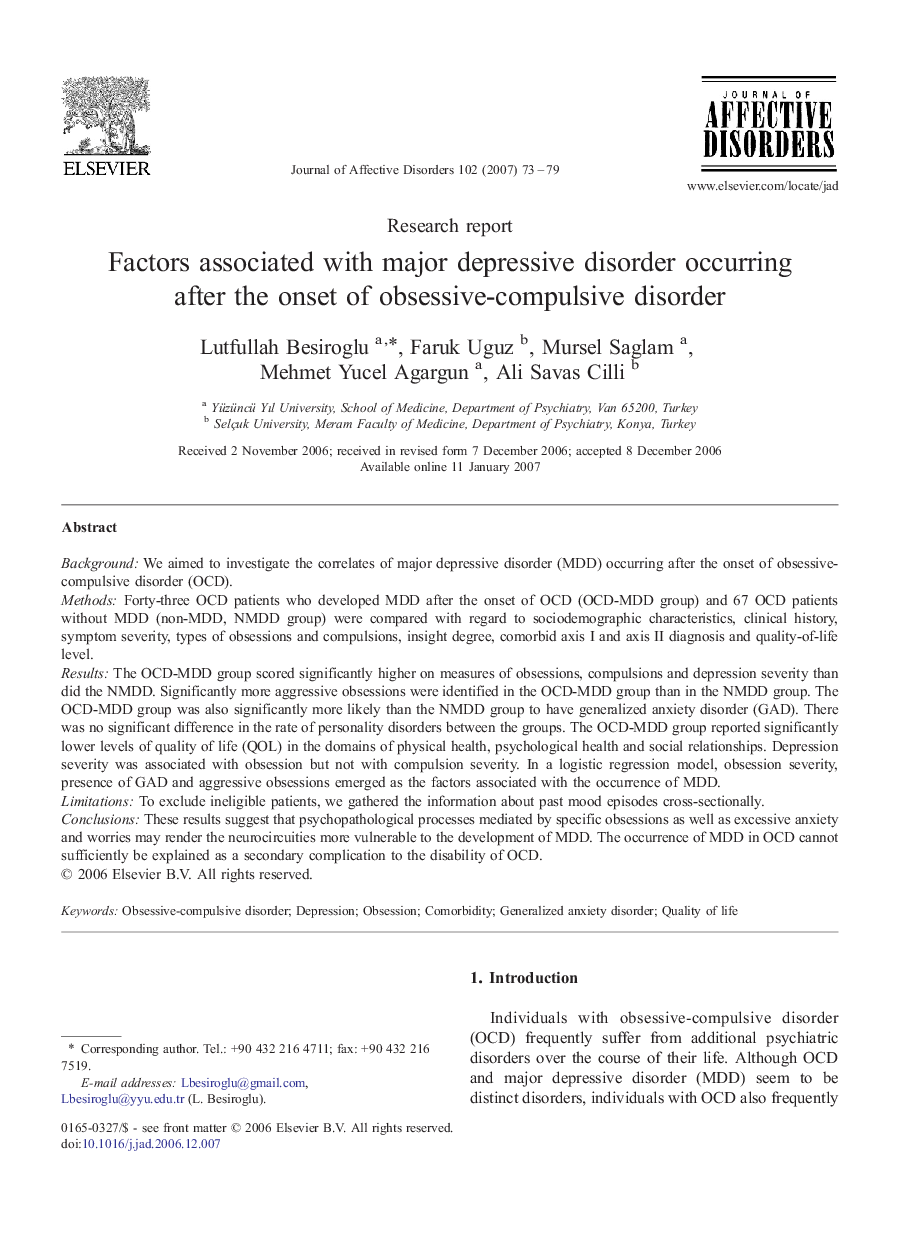| کد مقاله | کد نشریه | سال انتشار | مقاله انگلیسی | نسخه تمام متن |
|---|---|---|---|---|
| 4187490 | 1608219 | 2007 | 7 صفحه PDF | دانلود رایگان |

BackgroundWe aimed to investigate the correlates of major depressive disorder (MDD) occurring after the onset of obsessive-compulsive disorder (OCD).MethodsForty-three OCD patients who developed MDD after the onset of OCD (OCD-MDD group) and 67 OCD patients without MDD (non-MDD, NMDD group) were compared with regard to sociodemographic characteristics, clinical history, symptom severity, types of obsessions and compulsions, insight degree, comorbid axis I and axis II diagnosis and quality-of-life level.ResultsThe OCD-MDD group scored significantly higher on measures of obsessions, compulsions and depression severity than did the NMDD. Significantly more aggressive obsessions were identified in the OCD-MDD group than in the NMDD group. The OCD-MDD group was also significantly more likely than the NMDD group to have generalized anxiety disorder (GAD). There was no significant difference in the rate of personality disorders between the groups. The OCD-MDD group reported significantly lower levels of quality of life (QOL) in the domains of physical health, psychological health and social relationships. Depression severity was associated with obsession but not with compulsion severity. In a logistic regression model, obsession severity, presence of GAD and aggressive obsessions emerged as the factors associated with the occurrence of MDD.LimitationsTo exclude ineligible patients, we gathered the information about past mood episodes cross-sectionally.ConclusionsThese results suggest that psychopathological processes mediated by specific obsessions as well as excessive anxiety and worries may render the neurocircuities more vulnerable to the development of MDD. The occurrence of MDD in OCD cannot sufficiently be explained as a secondary complication to the disability of OCD.
Journal: Journal of Affective Disorders - Volume 102, Issues 1–3, September 2007, Pages 73–79